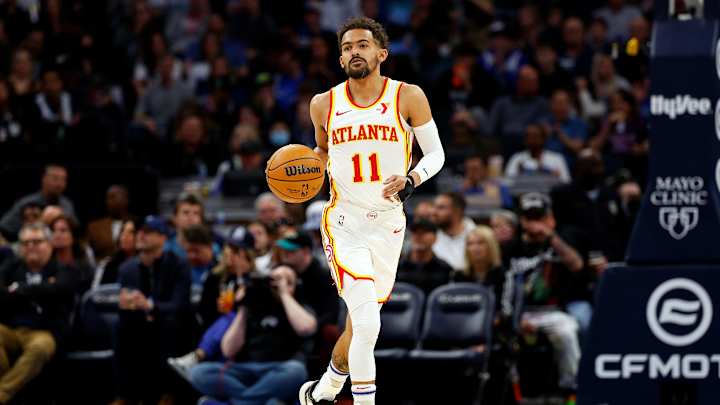
In a stunning turn of events, a new revelation about Trae Young has surfaced, casting a spotlight on the San Antonio Spurs’ decision to pass on him in the 2018 NBA Draft.
The Spurs, renowned for their strategic acumen, have long been praised for their draft decisions, and recent developments have bolstered their reputation even further.
Trae Young, the dynamic point guard who was selected by the Atlanta Hawks with the fifth pick in the 2018 Draft, has been a standout player, earning multiple All-Star selections and establishing himself as one of the league’s premier offensive talents.
However, recent reports suggest that Young’s career trajectory might not have aligned perfectly with the Spurs’ long-term vision, confirming their controversial decision to opt for other prospects.
Sources close to the Spurs reveal that the team had significant concerns about Young’s fit within their system. The Spurs’ front office, led by then-General Manager RC Buford and Head Coach Gregg Popovich, extensively analyzed Young’s playing style and its compatibility with their team philosophy.
Despite Young’s evident skill and impressive college performances, the Spurs prioritized players whose styles they felt would integrate more seamlessly into their established system.
One of the most striking revelations involves the Spurs’ internal metrics and scouting reports. The team’s analytics suggested that Young, while exceptionally talented, had defensive limitations that could be exploited by more defensively-focused teams.
The Spurs, known for their balanced approach and defensive prowess, were wary of investing in a player whose defensive weaknesses might undermine their team dynamics.
Moreover, the Spurs had a vision for building a team around a strong defensive core and versatile players who could contribute on both ends of the floor.
This strategy led them to select Derrick White, a player who, while not as high-profile as Young, embodied the multifaceted skill set and defensive capabilities that fit the Spurs’ blueprint.
The revelation underscores a broader truth about the NBA draft: the importance of team fit and system compatibility often outweighs individual talent in the long run.
While Young’s individual brilliance is undeniable, the Spurs’ decision to pass on him in favor of players who aligned with their strategic goals has been validated by their ongoing success and the evolution of their roster.
As the NBA continues to evolve, this revelation serves as a reminder of the intricate balance teams must strike between individual talent and team cohesion.
For the Spurs, the decision to prioritize system fit over immediate star power appears to have been a prescient one, reinforcing their reputation as one of the league’s most astute franchises.

Leave a Reply